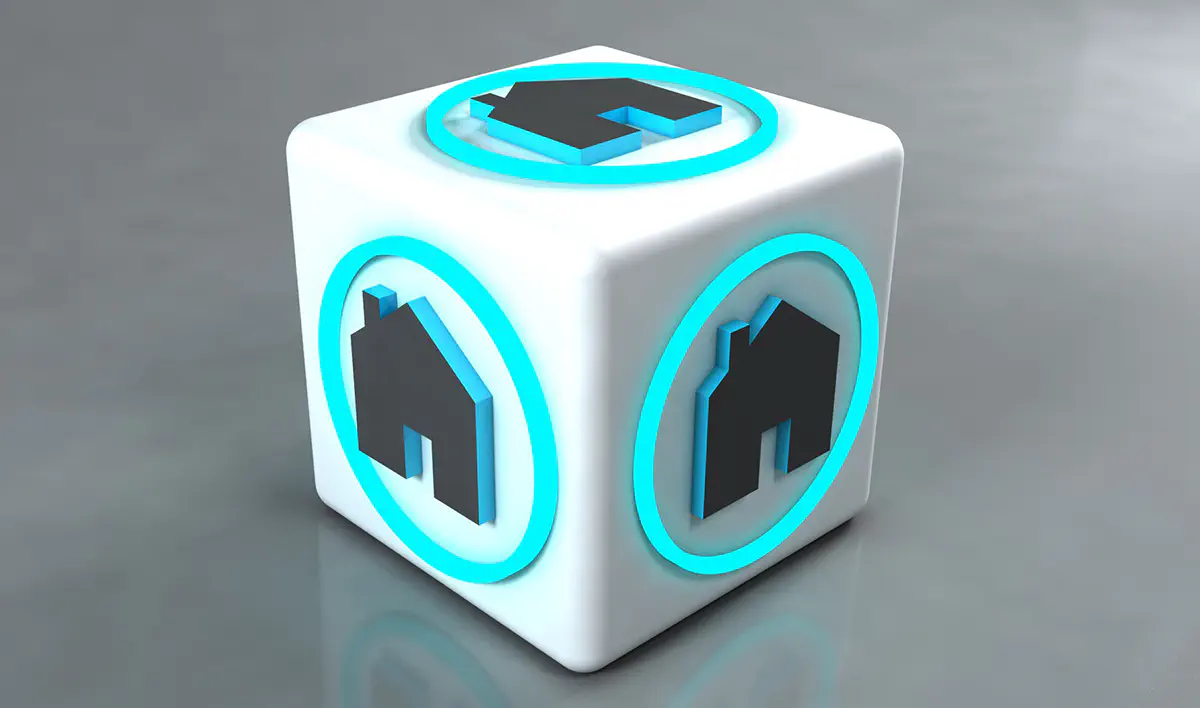Secret Life of Talking Houses: How IoT Can Help Realtors

The Internet of Things, also known as Connected Devices, are making houses talk. With the advent of IoT in real estate, homes are advancing into sci-fi imagined futures. What was fiction, such as pre-set and remote control for heating, lighting and even food ordering, is becoming reality.
Can connected devices help realtors and real estate agents and property owners and developers?
Do modern customers expect to be able to talk to systems in their homes, and what is becoming a new norm in real estate around the world?
We investigate to find out more about the growing role of IoT applications in real estate.
How big is the Internet of Things (IoT)?
Until the Internet revolution, plug sockets, lighting, heating, plumbing and thermostats — the everyday things we rarely need to think about that makes our homes work — were dumb. Often they perform one or two functions and have simple controls. Usually, these controls don’t need circuitry or microchips, and they were never connected to the Internet.
However, in the last ten or more years, entrepreneurs and engineers have been looking at ways to make these everyday household systems smarter. Make them talk to one another. Input new functions and things they can do. Extract data from them and then make them even more useful.
This became known as the ‘Internet of Things.’
In 2022, Ericsson estimates that there will be 16 billion short-range connected devices (e.g. meters that only work in proximity to another controlling device, such as an app on a smartphone), with a growth rate of 20% CAGR. Ericsson is also predicting 2.1 billion long-range, or wide-area IoT devices by 2022, with a 30% CAGR growth rate.
Connected devices, such as cars, machines, meters, wearables and other consumer electronics, are expected to vastly exceed smartphones and tablets in a couple of years. So, the impact of IoT on business cannot be ignored.
Recognizing potential use of IoT in real estate is expected to play a big part of that.
What does IoT mean for realtors?
Smart devices in homes make them more valuable for owners. IoT devices future-proof them and make them more efficient, giving them a long-term advantage for discerning consumers and high net worth individuals.
Here are just a few ways IoT is changing real estate:
IoT makes properties more energy efficient
In offices, we have got used to movement-based sensors.
With smart devices and lighting systems, we can bring those same energy efficiency improvements to homes everywhere. Imagine lights that only switch on and off when people come in and out of rooms, and only when external lighting conditions mean it’s dark enough to come on? Or lights we can control in advance of getting home with a smartphone app?
All of that exists, now. Older homes are being retrofitted and newer ones are having these installed on-spec.
The same can be done with heating, to make it smarter, more efficient and responsive to customer needs. Not only are these improvements better for the environment, they also reducing the overall running cost of a house, which has to be good for realtors and home owners.
IoT making maintenance predictive
In manufacturing and industrial sectors, these changes and new technology is already making a massive difference to maintenance cycles and costs.
Instead of fixing something when it breaks, with smart devices, owners of appliances and products that need maintenance — such as boilers and electrical systems — can be alerted in advance. No more nasty and expensive surprises when it comes to needing to fix things.
One example of this in use is Applied Energy Partners’ SiteWatch platform, which gives home owners and real estate agents predictive schedules to review and fix appliances and equipment. It can also alert people when something isn’t working as it should, preventing unexpected unpleasant surprises.
IoT improving house hunting
Real estate house hunting is part guess work, part sales, and part hope.
Modern customers want and need a little more data to support big purchasing decisions. Considering property is the largest purchase most people will make, new smart sensors can only be a welcome addition to the real estate experience.
Beacons for real estate is one of the fastest growing technologies in realty today. For example, beacons are being used more often in selling real estate. BeaconSAGE is an IoT provider that creates beacons for realtors. Use them to create virtual tours, give buyers more information on square footage, and even place beacons around the exterior of a house so that when a buyer is near, the beacon transmits more information about the property before a realtor even arrives.
There are many advantages of beacons for real estate. Beacons can be used to give potential buyers (and renters) and personalized buying experience. Making it easier for realtors to sell desirable property to customers with the purchasing power.
The future of IoT in real estate
With more IoT devices finding a home in real estate, we can expect homes to get smarter, easier to run and more energy efficient. Realtors won’t need to work as hard, when they’ve got IoT support, but they will need to ensure homes are up to the standard that many new buyers expect. IoT-enabled software applications also open up new ways for realtors and property managers to improve the buying experience.
Don't want to miss anything?
Subscribe and get stories like these right into your inbox.
Keep reading

AI in Real Estate | Use Cases, Benefits & What’s Next
Explore how AI is transforming the real estate industry – from property valuation and market forecasting to generative design and smart building management. Real-world use cases, trends, and expert insights from Anadea.

Top Trends in eLearning: Which EdTech Trends to Improve
Globally, the education sector as a whole is undergoing massive growth. In America alone, spending on education technology now exceeds $13 billion.

How Effective A/B Testing Drives Success in Real Estate App Development
The success of real estate giants like Zillow and Trulia lies in fitting together many components. Today, we’ll focus on A/B testing for real estate platforms.
Contact us
Let's explore how our expertise can help you achieve your goals! Drop us a line, and we'll get back to you shortly.
